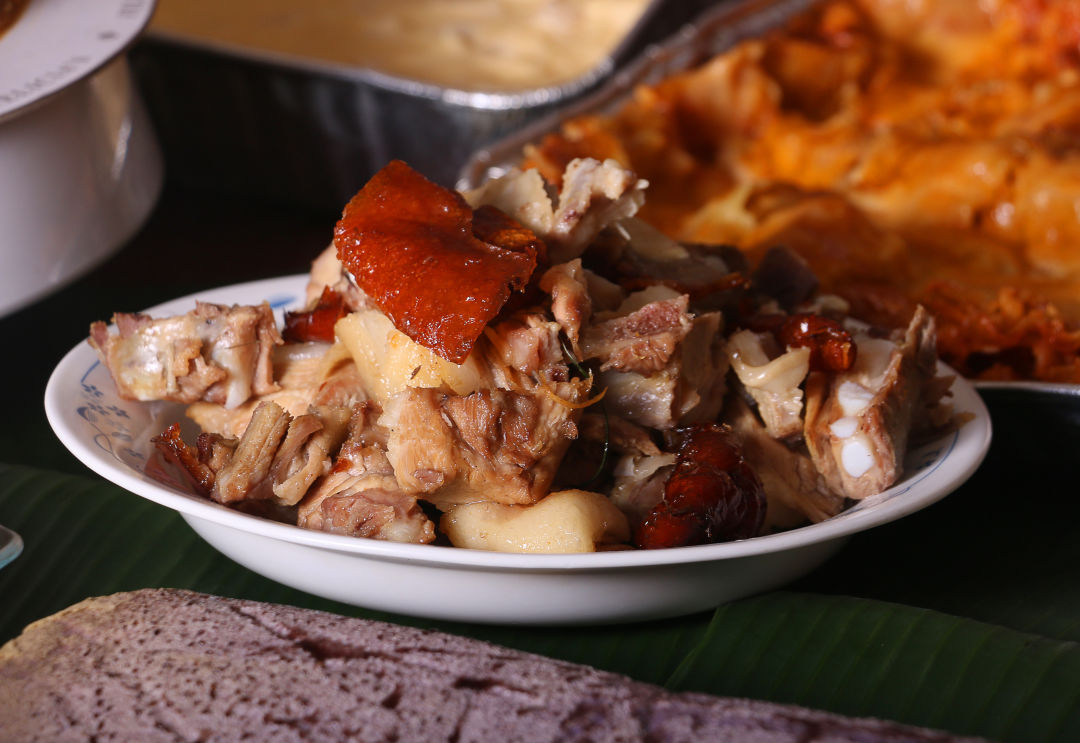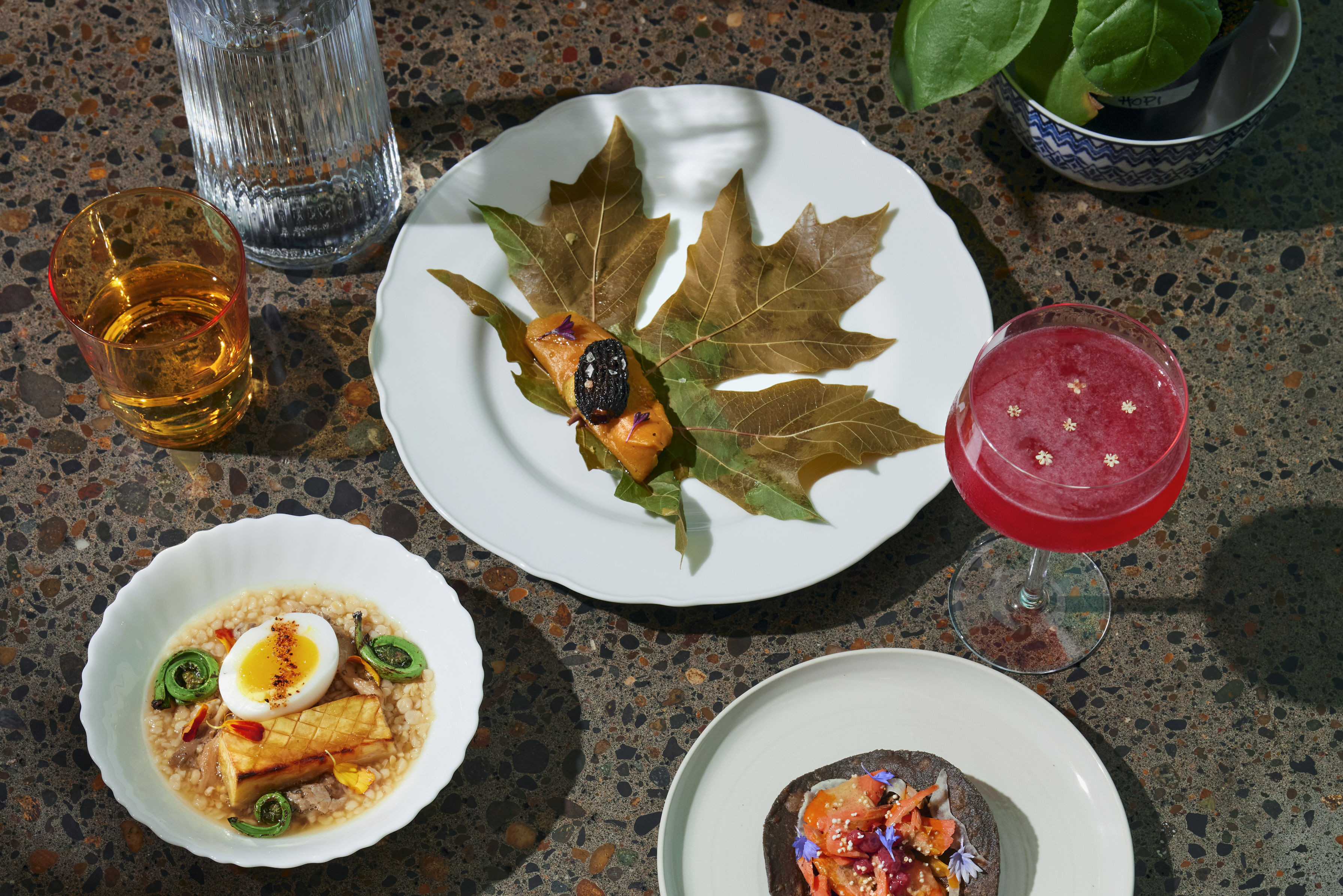You Can Help Puerto Rico by Eating at This Lechonera Pop-Up

Eat lechon—Puerto Rican-style roast pork—for a fundraiser in honor of Portland restaurateur Andy Diaz's late grandmother, who passed away in the days immediately following Hurricane Maria.
Locally, Portland restaurateur Andy Diaz is known more for Champagne and sushi than mofongo and roast pork. Since 2007, he's operated NE Fremont’s spacious Blackbird Wine Shop & Atomic Cheese Bar; in 2013, he opened upscale sushi spot Daruma around the corner. (Daruma recently relocated to roomier digs on NE Killingsworth.) But Diaz always hoped to share the cuisine closest to his heart: the humble Puerto Rican street food he devoured with his grandmother Juanita during summer trips to Aguadilla, on the island's remote northwestern corner.
"She was always shoving food in my face," Diaz remembers. "My fondness for her relates to overeating. She had a real weakness for food."
For Diaz, the road back to his grandmother's local lechonera—as Puerto Rico's ubiquitous roadside roast pig shacks are known—started with the September 2017 tragedy known as Hurricane Maria. The days and weeks following the Category 5 hurricane's landfall were excruciating for Diaz and his family, who largely live in the New York City area. With Puerto Rico in a literal blackout, mainlanders struggled to locate island-residing relatives and friends, and then find ways to help them. Meanwhile, back in Washington, DC, federal agencies seemed more interested in political brinksmanship than repairing the power grid.
“Obviously I was as frustrated as you would imagine by the lack of timely response,” Diaz says.
He wasn’t alone. In the days after Maria, Diaz received a surprise call from a stranger, an Intel employee who’d heard from her hairdresser that Diaz also had ties to the island. Soon after, she and a posse of fellow Puerto Ricans descended on Blackbird to brainstorm.
“Everyone was experiencing the same sort of frustration, that we couldn’t get things to our family,” Diaz recalls. “Finding out who needed what was also really difficult. The common theme among the people at the table that day was that it was the elderly people who were going to suffer the most.”
Maria's official death toll is 64, but as of December, the island’s statistics bureau indicated that the storm—and that fitful federal response to it—may be connected to well over a thousand additional deaths: casualties of heat, undrinkable water, a lack of access to basic services, and that failed power grid.
One of those casualties was Diaz’s 86-year-old grandmother, who was being treated for abdominal pain at a regional hospital as Maria made landfall. When the facility lost power, Diaz’s grandmother was sent back to her home: a small hospice house in Aguadilla run by a caring nurse. The home, located near to the town’s mayor, had back-up power—until its generator was stolen from the courtyard. Then the water ran out, as temperatures soared into the 100s. Within days, Diaz’s grandmother—who’d help raise Diaz, and who’d realized a longtime dream when she and her husband retired to the island—had passed away.
Diaz and his family are now working through his grandmother’s estate; come spring, they plan to convene on the island to memorialize his grandmother on what would have been her 87th birthday.
In the meantime, Diaz decided he needed to find a way to help the hospice house that took care of his grandmother in her final days—so that when the next storm comes, they’ll be ready no matter how inadequate the official response. His tools? Food—and plenty of restaurant space at the new Daruma. Enter the lechonera.
“It’s typical food, but also poverty food: rice and pigeon peas, roast pork, yuca. Sometimes bacalao," says Diaz. "They’re all over the island. You have your favorite one and you generally know the family and they’re sort of extensions of your own family.”
Diaz's fundraising idea—a pop-up lechonera dinner scheduled for Tuesday, January 30, at Daruma—aims to net $2,000, enough for a survival kit that includes portable solar panels and generators that in turn feed battery packs to run kitchen appliances.
If successful, Diaz will deliver the kit in person to the hospice house during his May memorial trip to Puerto Rico. In the meantime, if demand holds, he’d like to extend the fundraiser to benefit other struggling families he’s learned of through the grapevine.
“I’ve got menus for three events already planned out,” he says. “If we can pull it off, I’ll keep the dinner going.”
Pop-Up for Puerto Rico
7–9 p.m. Tue, Jan 30, Daruma Sushi and Sake, $60




